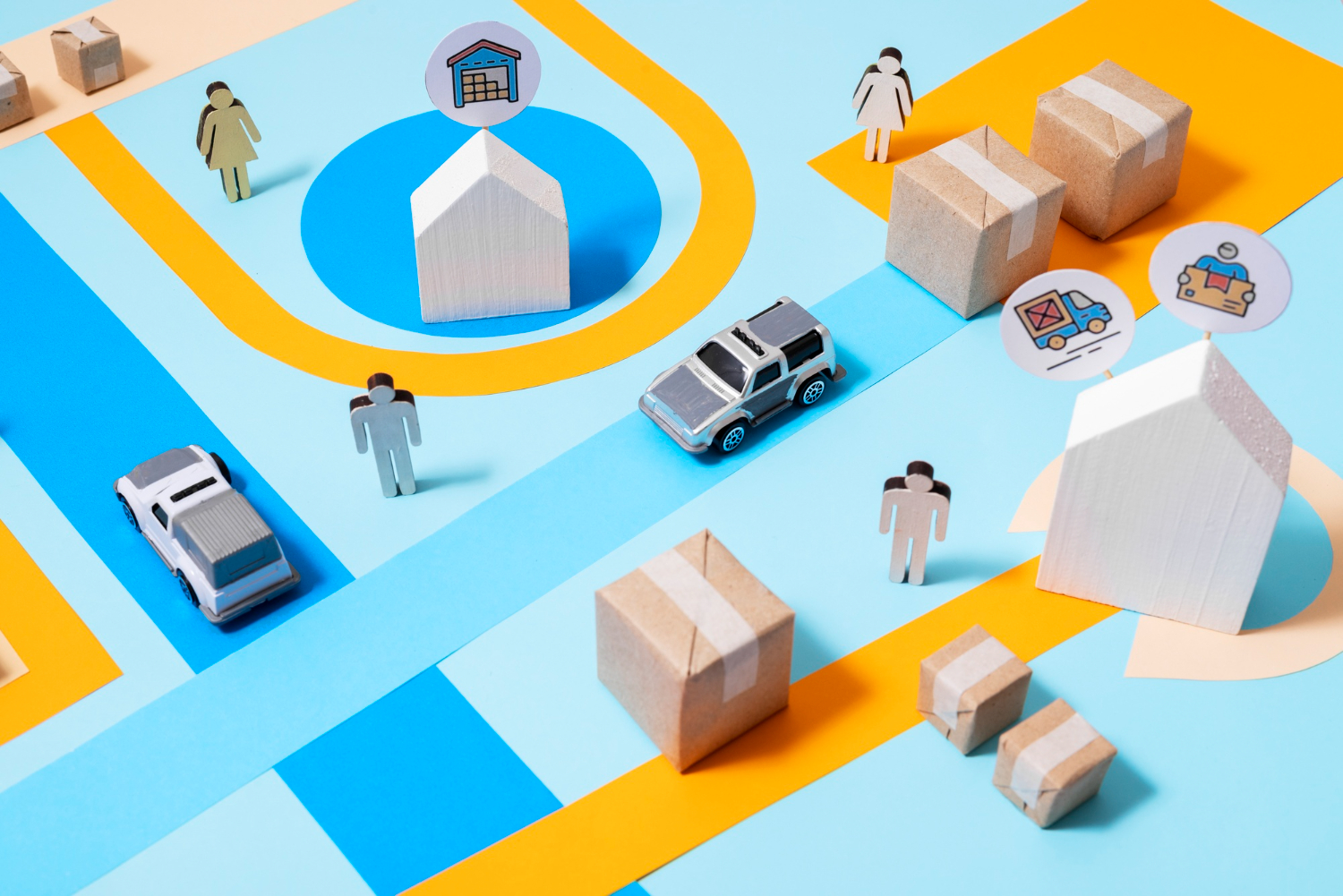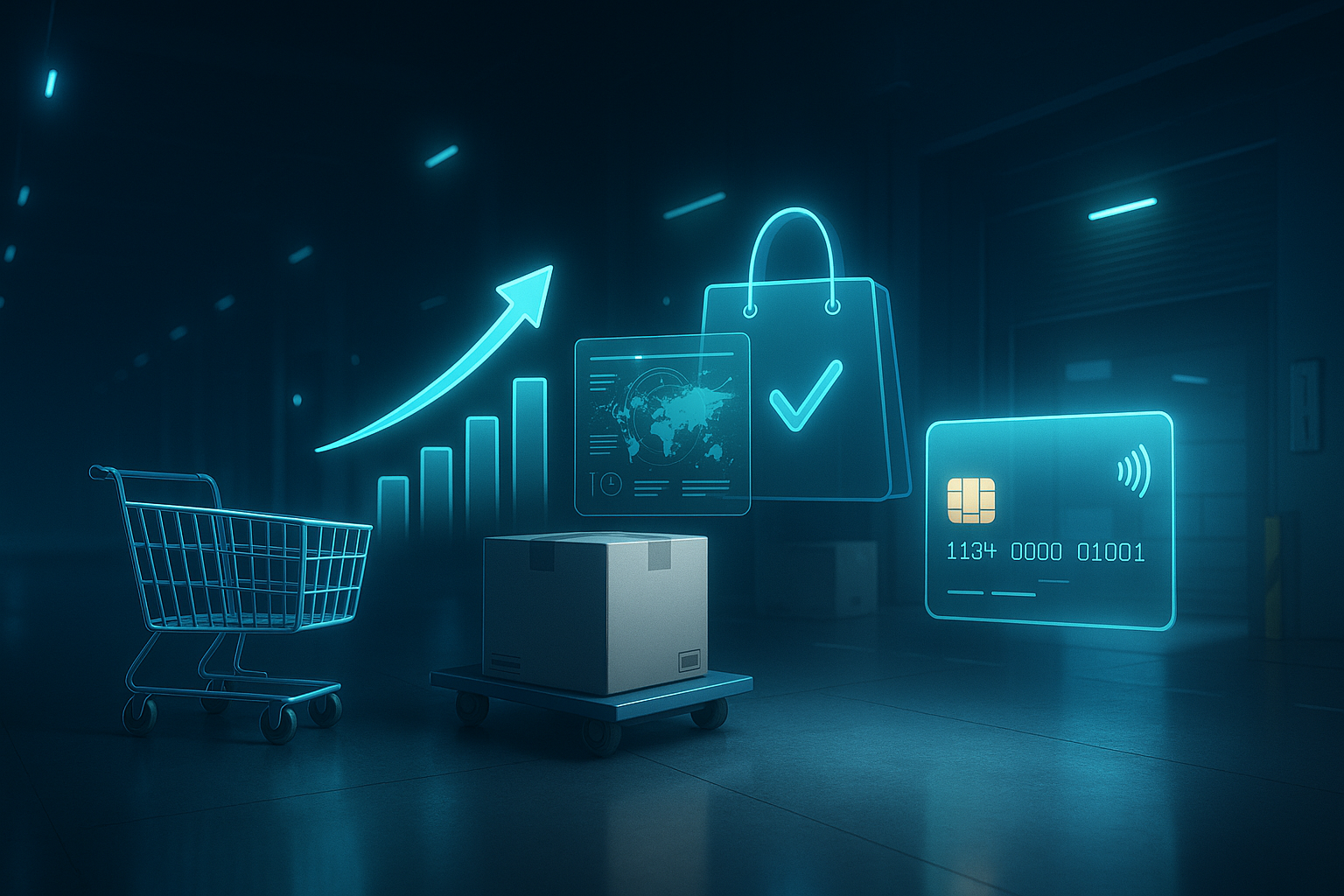

First, what is B2B eCommerce ?
B2B ecommerce, or business-to-business electronic commerce, describes online order transactions between businesses, and it’s a sector that’s growing rapidly. While the options for B2B eCommerce platforms have traditionally been rather limited, there are now a growing number of viable channels which businesses can use to effectively expand their reach, and get their products and services to the right people. Orders, validations and shipping are processed digitally, optimizing the buying efficiency for distributors, manufacturers, distributors and wholesalers and other types of B2B sellers. With Forrester predicting B2B eCommerce sales will hit $1.8 trillion in the US by 2023, it’s clear that B2B businesses need to get themselves in gear, and implement the necessary internal structures now in order to stay competitive in the digital future.
Let's take a look at the different types of B2B eCommerce.
Different types of B2B eCommerce :
- B2B2C
Business-to-business-to-consumer (B2B2C) eCommerce takes out the middleman between the B2B organization and the B2C, putting the businesses directly in contact with the consumer. How wholesalers and manufacturers interact with traditional B2B and B2C models can best exemplify how it works. With B2B2C ecommerce, these transitions happen online, often through virtual storefronts, an ecommerce website or even apps. In many B2B2C eCommerce models, the consumer knows they are getting products from a business that’s separate from where they purchased it. For example, a consumer may purchase a clothing product from a marketplace provider, gathering multiple brands, but the product is branded and sent by the manufacturer.
- Wholesale
Wholesale can best be described as the sale of goods to other businesses. Businesses often buy goods in bulk for a lower price and resell them at retail value. The goods are usually purchased directly from the manufacturer or distributors. This is wholesale, and it's a popular type of B2B. Wholesale B2B models can be found across multiple industries such as retail, food service, construction, and medical and many others. Traditionally, wholesale B2B transactions occurred over the phone, via email or the fax. With wholesale B2B eCommerce, everything is digital which allows the wholesaler to display products easier and creates a seamless buying experience.
- Manufacturers
The auto industry illustrates well manufacturers in a B2B arena. For example, the manufacturer creates individual car parts, such as a wheels, fuel pump and an engine. Then, the manufacturer sells these parts to an automotive company that builds the entire car from the parts and sells it to the consumer. In the B2B model, the finished goods are sold to other manufacturers or wholesalers. With B2B eCommerce, manufacturers can embrace a digitally connected ecosystem of customers, internal teams, data and systems that they manage through a single platform.
- Distributors
A distributor is a person or entity who works closely with manufacturers to increase sales and bring visibility to the goods of manufacturers. In an eCommerce model, the the sale happens online, often through an ecommerce platform. Many manufacturers work with distributors and taking things digital creates a greater opportunity for growth. Distributors are working to shorten the lead time from sale to delivery. More than anything, distributors are looking to create a customer experience that meet sky-high customer expectations.
Now, which type is the best fit for you ?
It all comes down to what you're looking for :
Factor 1: Build or re platform
Factor 2: Number of features and integrations
Factor 3: Number of rules and custom features
Factor 4: Design of storefront
The truth is that businesses don’t need to start big to succeed. Often starting smaller and focusing on the most important elements in your eCommerce platform will lead to success because the concept is tested with products actually being sold and people from your organization can manage the new platform systems.
Key considerations :
- A flexible and customizable platform built on modern technology i.g headless
- Multiple B2B features and channel bundling allowing to connect with any internal or external systems
- Quick order, check out
- B2B specialized vendor who becomes your partner
There are several types of B2B Commerce solutions on the market with different costs.
Depending on where you are in your digital journey, the type of back-systems that you already have in place may play a crucial role in the choice of your future B2B Commerce solution. Choosing a platform that can connect into any existing back-end systems can help you save huge costs and more importantly give you visibility of data, higher productivity and in the end a rich customer experience.
While on-premise can be highly effective, they take longer to launch due to development and they can become highly costful when new versions come out. SaaS platforms are more flexible and requires no in-house hosting or heavy development. This naturally affects the costs and will in most cases be less expensive in the long run for business.

-modified.avif)



